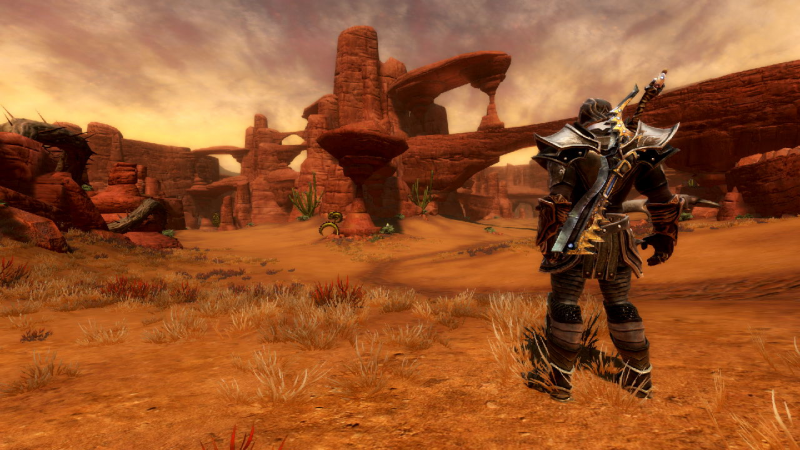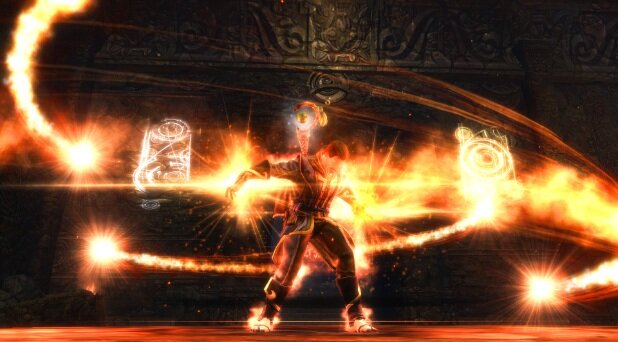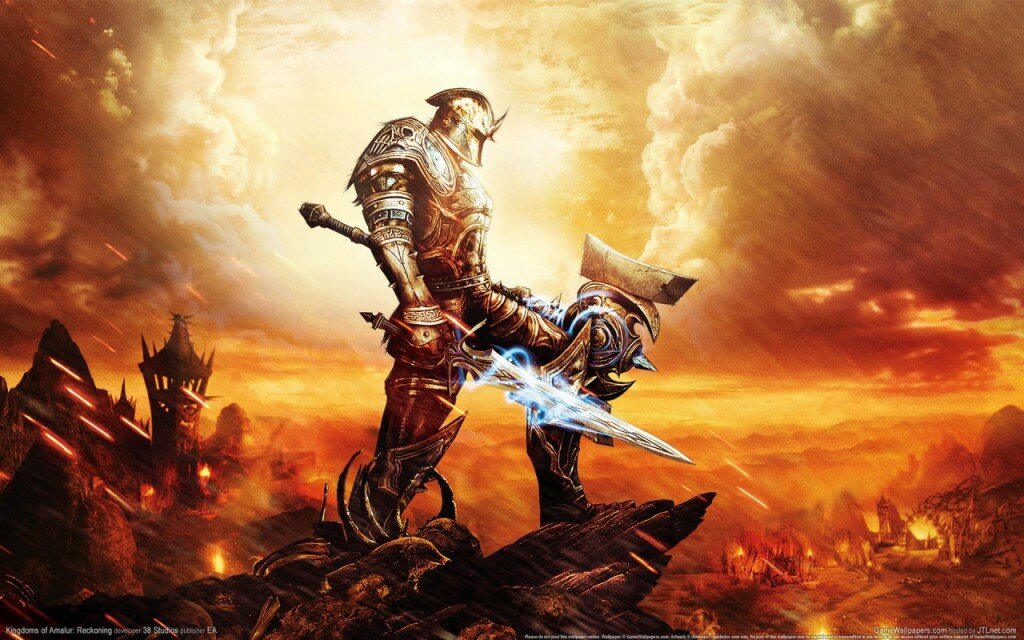
I’ll admit it, I’m a sucker for a good fantasy RPG. Oblivion and Dragon Age are pretty much perfect game in my eyes. So when I found Kingdoms of Alamur: Reckoning for sale on Steam for just over £7, I thought why not, let’s snatch it up! It could be all-right! And I have to say, I was pleasantly surprised by this game I had never heard of! Where did this come from? A classic fantasy RPG, embodying everything the genre aims for, embracing its stereotype almost to the extreme. How good is it? Let’s see:
Style
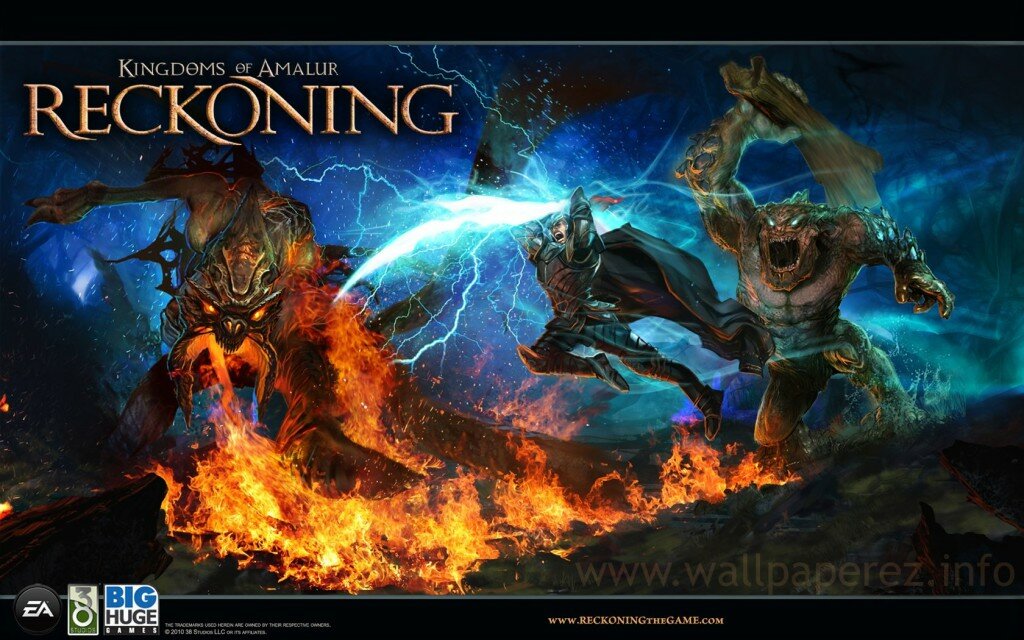
Kingdoms of Alamur: Reckoning is an open world fantasy role playing game, in which you are free to do and explore as you please. The game seems to take on every aspect of the genre and tackles it head on, from clichés to classics and from dragons to ogres, it doesn’t leave out anything. There are a vast range of weapons as well as an expansive collection of magic. The world is ancient and beautiful, and filled with histories of wars and conflicts and mysterious secrets needing to be unearthed. Although I love how the traditional fantasy features made me comfortable with the game, I often felt myself wanting for more originality. It feels typical and conventional, and lacks a necessary unique hook. This may well be why I’ve never heard of it before.
This game is extremely reminiscent of the first Fable game. In its half-real half-cartoon graphics, its destiny and fate related narrative, and its general game play methods, one could easily compare the two and find a dozen or more similarities, or even copies. This does allow me to enjoy a certain nostalgic air when playing, remembering the 2004 classic, but also makes me note even more the game’s tendency to replicate everything ever seen. But this isn’t a huge concern once you really get into the game.
Story
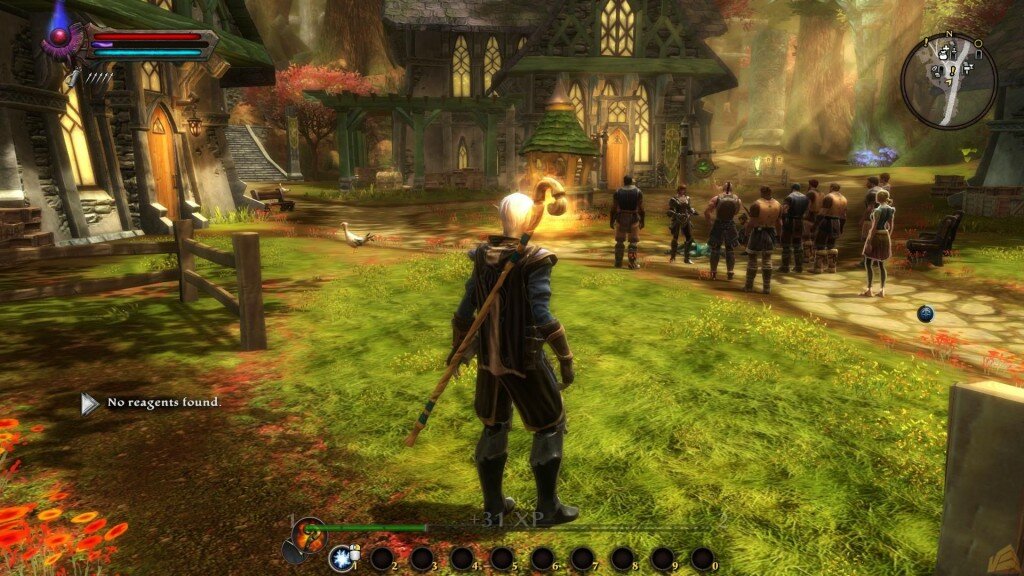
There are four playable races in this game. The races vary in abilities, humans being greater with weaponry, combat and speech-craft, while the elves show prowess in magic and stealth. Once decided, you find that you are dead. Game over, reinsert disc to play again. But really, your character is brought back from the dead by a mysterious device known as the Well of Souls. The Well is destroyed in a battle, but you survive as proof of its success, and proof that immortality is far from impossible. Escaping the conflict, you learn that in death, you have escaped the ties and restraints of fate which dictate the beings of life, and your destiny has become yours to forge as you please.
It’s a great starting point to a potentially epic story, but sadly the game drops the ball later on. It instead takes on an unspectacular narrative we have seen a dozen or so times before. An evil dictator attempting to conquer the world and you must stop him. Yawn. The story isn’t bad, not at all, there was just little about it that ever grasped me as unique and interesting. Consequentially, I found myself going through the main quest methodically and with a lack of interest and no passion for the narrative. But thankfully, the sidequests make up for where the main story disappoints. There is one where a man who was turned into a wolf and needs you to follow a migrating hollow that transports across the land. Another show a feminist uprising against a patriarchal church.
The World
The world of Alamur is, in a word, stunning. Its colours and its imagery and its landscapes are all equally vivid and beautiful, with blue, glowing buds sprouting from your feet, and green glittering trees raining down shining leaves upon you, while the rivers sparkle as if a king had spilt his sapphires into its depths. The designers clearly put a lot of work into its beauty, and it has paid off. The visuals in this game gave me a great first impression. Exploring its every corner is recommended. The sneaky designers will hide the really good loot it in a rotten log you never noticed. The world is fairly sized, split into zones and realms and dungeons, with doorways and loading screens in between each zone. More like Fable than Skyrim in that sense, the world is not entirely and completely open, but there is enough to satisfy.
Combat
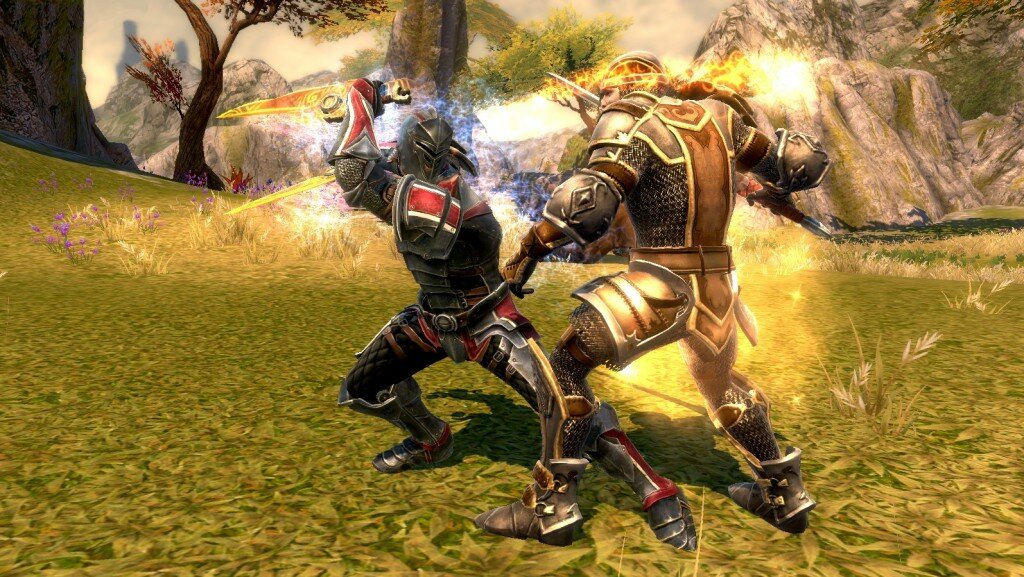
Now this is where Kingdoms of Alamur: Reckoning really shines! The fighting is unbelievably, ridiculously fun! Seriously, its some of the most intense and adrenaline fuelling combat I’ve seen in a while. It’s just your basic free flow fighting style, you know, spam the X Button and block here and there. But it doesn’t seem so basic, it feels fast paced, dramatic, powerful and overwhelmingly enjoyable. Your character heaves around your blade, swinging through the air, to whack through your enemy in one swift move, before you flip, roll, and hop skilfully away from his angry friend behind you. With him, you throw out your hand, and vivid, shocking blue lightning pulses forth, the noise resounding and crisp, to cook him just right. It all just looks fantastic, and fully absorbs you in the moment of it all. The game does have a serious flaw however, in that there is no locking on ability, its up to you to hit your target on par which, I guess they could say aims for an air of realism, but realism fits nowhere else in the rest of the game! And locking on would be a welcome commodity.
The magic is another form of combat beyond blades and bows, and is equally as visually incredible. The colours and the imagery of each spell is mind-blowing and intense, not to mention cool looking. You start at basic lightning as in many games, but can progress onward to earthquakes, fire-storms, even mind control and slowing time. It is also easy to use when in mid combat, and is actually somewhat overpowered in damage, near killing most enemies in one once you advance to a high enough level.
Character Progression
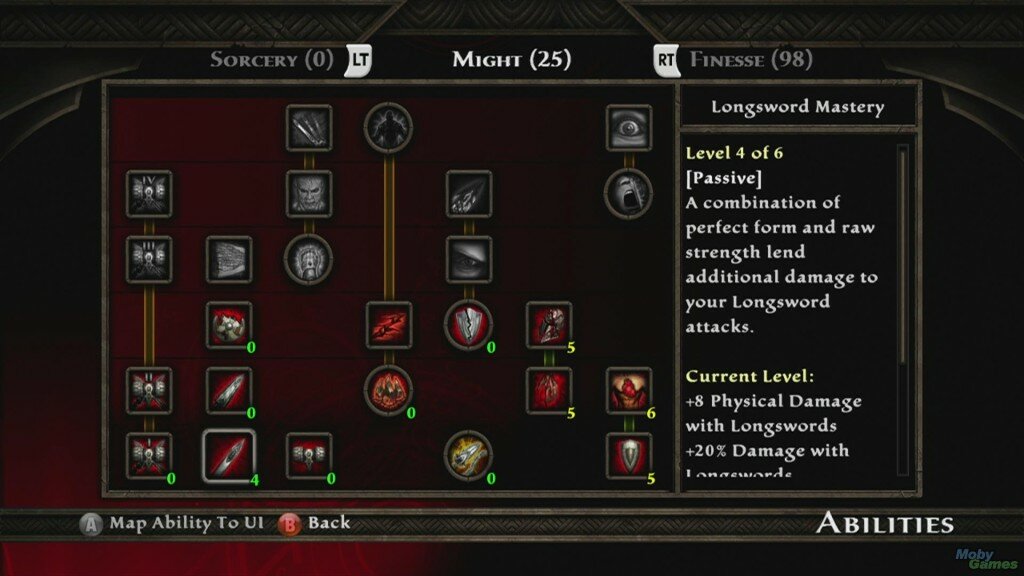
Levelling up and skill sets in Kingdoms of Alamur: Reckoning are a bit of a mixed bag. There are 3 stages in levelling up, the first being your skills. Unfortunately, none are the skills you really want to improve. In game, speed and strength and accuracy are all things I would like to delve into, but instead, the skills offer unrewarding and uninteresting skills such as alchemy, speech-craft and detect life. All things that might come in handy, but not as much as a bit of added muscle. But, the second stage is a fair bit cooler. The second stage presents a tree of abilities and skills, offering special combat moves and spells, improvements on your use of certain weaponry, or self-alteration opportunities to really advance your character and kick fantasy butt. The third stage is again, less impressive and arguably unnecessary. You choose a fate (seeing as in death you are fate-less) and each fate simply gives you some minor skill perks – like choosing a god in Oblivion. These get greater with level progression, but are never especially spectacular.
Final Impressions
In general, the Kingdoms of Alamur: Reckoning, is a fun, enjoyable game that I could easily play for a day or two, relishing in the intense combat and spell weaving and in the beauty of the world. It offers all that I might want from an open world fantasy, in its vast universe, its expansive weaponry options and its opportunity at complete freedom. However it is not a game I would remember years on, or even weeks on perhaps. Its lack of originality weakens its identity. The game appears only as a stereotypical convention of the fantasy RPG genre, as if the designers had run out of ideas and put a bunch of RPGs in a blender and took shots. You can see that I couldn’t help but repeatedly this game to a dozen others. This does not diminish the enjoyment of the game play, but certainly weakens it as a whole.

